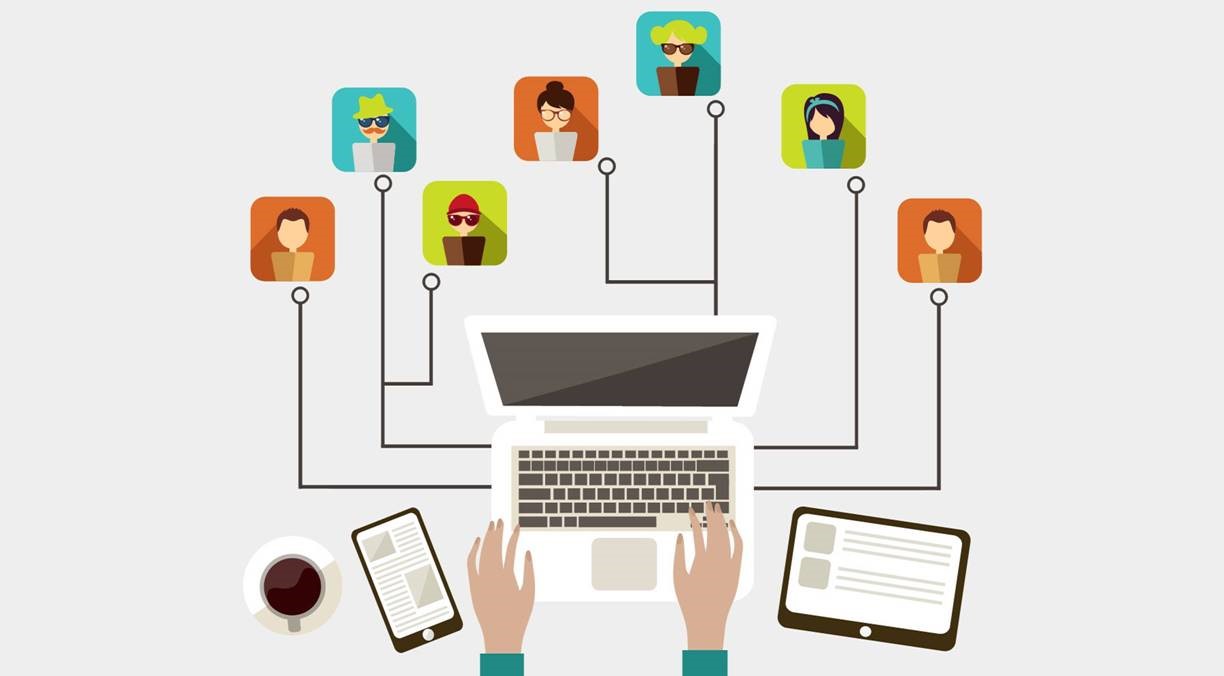What is Remote Work?
Published

An introduction to remote work
Since the outbreak of the Corona pandemic, remote work has been on everyone's lips. But what exactly is remote work? How does it work? What are the advantages and disadvantages? Why should I care? We address these questions, both from the perspective of the employer and the employee.
What is remote work and why is it a serious issue?
Remote work is on the rise. According to the data conducted by Buffer State of Remote Work in 2021 Survey Most remote workers (97.6%) want to work remotely at least some of the time for the rest of their careers and 97% of remote workers would recommend remote work to others. In a similar one Study Zug-based office services provider IWG in 2019 found that 70% of professionals work remotely at least one day per week, while 53% work remotely at least half the week. Companies that have not yet transitioned to remote work could find themselves falling behind.
But what exactly is remote work? Remote work (also called telecommuting or remote work) includes any type of work that does not have to be carried out in a traditional corporate office. Remote workers can do their work from anywhere - including at home, in a co-working space, in a coffee shop, etc. - provided they have adequate access to the internet and the tools necessary for their work.
The benefits of remote work
1. Remote workers save money

Those : isaacintelligence.com
Imagine how much money you can save by working from home? Commuting, lunch, drinking coffee, meeting clients, buying work clothes - it all adds up over time. Loud Global Workplace Analytics People who work from home even half of their working hours can earn between $2,000.00 to $6,500.00 (or CHF 1,830.00 to CHF 6,000.00 and EUR 1,730, 00 to EUR 5,620.00) per year. That's a lot of money to spend on your family, yourself, or put into a retirement fund.
2. More freedom and flexibility in everyday life
You can keep appointments free, pick up the kids from school and find your own work-life balance. It doesn't always have to be 8:00 a.m. to 5:00 p.m.
3. No daily commute
When you work remotely, you no longer have to sit in traffic for hours or squeeze into a crowded train or bus to get to the office. Not to mention the hours saved - your time (and your team's time) is valuable. Full-time telecommuting gives employees the extra time to focus on the work that matters instead of worrying about traffic and increasingly long daily commutes.
If you want to leave the house to go to a café or a co-working space, you of course have that option too. Once you've set up a home office, all you have to do is sit down and start working!
4. Wear whatever you want

Those : tameday.com
Do you want to hold the Zoom meeting in comfortable trousers instead of jeans or chinos? As long as you wear a decent top, no one will notice.
5. More time for the family
Parents with children no longer have to negotiate with their bosses about whether they will pick their children up from school during their lunch break or take them to training. The flexibility of remote work makes it possible.
6. Create a flexible schedule that suits you
Life can get hectic – and that’s an understatement these days. And more and more companies embrace the philosophy: "If the job is done well, we don't care when you do it." When you work from home, you can plan your daily activities around your schedule. Do you need to run an errand between sessions and make up the time later? You have full autonomy to do this.
7. Bessere Work-Life-Balance
It may seem counterintuitive that bringing work home can lead to a better work-life balance, but hear us out. When you work from home, you often have fewer distractions (e.g. disruptive co-workers) and increase your productivity if you're set up correctly. This means work gets done faster and you have more time for your family and friends. Remote work is beneficial for your company because you have a broader talent pool to choose from and employee retention is higher because your employees have a job they love, from the comfort of their own home!
8. Fewer distractions when working from home

Those : cloudcodes.com
When you work from home, you have control over your work environment. This means you can create a space that promotes productivity and reduces distractions for you. An office filled with other people can be distracting - you're often tapped on the shoulder for small talk and questions that distract you from the task at hand.
9. Reduces your carbon footprint and is better for the environment
The fact is that commuting to a job increases your environmental footprint. Not to mention the pollution that comes from filling office fridges and pantries. In addition, working remotely also means using less paper, which also results in a lower environmental impact.
The challenges of remote work and how to overcome them
Therefore, before you decide to transform your company into a remote company or join a remote company as an employee, you should first be aware of the possible challenges.
1. Difficulty drawing boundaries between personal and professional life
When the division between work and private life is no longer so clear, some employees find it difficult to set boundaries. Many feel like they are expected to be online and available all the time, and tools like instant messaging can exacerbate that feeling. Additionally, those who work with employees in different time zones may find it difficult to establish a regular work schedule.
This challenge can be overcome with a corporate culture in which setting boundaries is encouraged and respected. When leaders set this expectation up front, lead by example, and support their teams when boundaries are violated, employees can feel confident in setting boundaries themselves. There are also methods that make it easier to communicate boundaries, such as: E.g. clearly setting “working hours” in calendars or maintaining status reports in business messaging tools such as Microsoft Teams or Slack. This way, your work colleagues know when you are available.
2. Lack of communication
100% virtual communication means more opportunities for miscommunication. When people aren't sitting next to each other, it can be harder to discuss things and get things done as a team. Instead of a casual conversation, they have to spend time typing something, and there is no guarantee that the recipient has read the message, let alone understood it.
However, it is a fact that misunderstandings occur whether a team works in different locations or in an office. The best way to address this challenge is to use video conferencing software in the company. Being able to talk to someone face to face makes a huge difference. Not only does it help team members bond with each other and build trust (which helps them deal with misunderstandings later), but it also helps avoid misunderstandings.
It also helps distributed teams have the space and flexibility to develop their own processes. Instead of suggesting or even imposing something, the team leader should ask about the challenge and encourage the team to reach an agreement on how they want and will work together.
3. Feeling isolated by fewer personal relationships
Whether it's grabbing a drink at happy hour or chatting over the weekend, remote workers need to put in more effort to socialize and build trust with each other. And if others on your team are working remotely, they may not put in writing what they talked about in person.
If you're a manager, create space for casual conversations in meetings and encourage employees to engage in activities beyond work. This is especially true if employees have the opportunity to meet despite their physical distance due to the geographical situation. If you, as a manager, model this behavior by asking your employees about their weekends, for example, it will be easier for your team to do the same.
Conclusion
At RemoteScout, we believe the benefits of remote work far outweigh the negatives, but only you and your team know what's best for you. But by educating yourself about the benefits and pitfalls, you can make a decision that's right for you.








